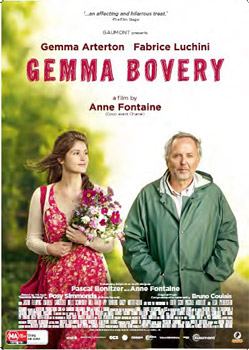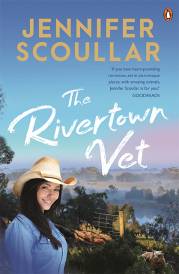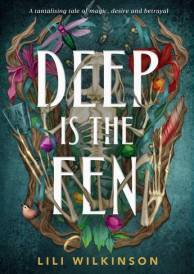Fabrice Luchini Gemma Bovery Interview

Fabrice Luchini Gemma Bovery Interview
Cast: Fabrice Luchini, Gemma Arterton, Jason Flemyng
Director: Anne Fontaine
Genre: Comedy, Drama, Romance
Rated: MA
Running Time: 99 minutes
Synopsis: When an English couple named Gemma and Charles Bovery move into a small Normandy town, Martin Joubert, the baker and resident Flaubert fan, can't believe it. Here are two real life figures who seem to be replicating the behaviour of his favourite fictional characters right before his eyes.
This charming retelling of the classic Madame Bovary story is a visual feast, from the picturesque countryside to the so-good-you-can-almost-taste-it patisserie. Gemma Arterton is the playfully updated version of France's most famous heroine with Fabrice Luchini as the smitten baker and film's narrator. Complications ensue when Gemma meets a dashing aristocrat - just as the plot unfolds in the book.
Skilfully directed by Anne Fontaine, who also made the similarly sumptuous Coco Before Chanel, Gemma Bovery is based on the popular graphic novel by Posy Simmonds. Balancing real sensuality and hilarious one-liners, this is an endearing film about the dangers of stirring passions, with Arterton radiant as the titular bored housewife and Luchini delightful as always in the role of the comically obsessed baker.
Gemma Bovery
Release Date: May 28th, 2015
Interview with Fabrice Luchini
Question: This is the second time you've worked with Anne Fontaine.
Fabrice Luchini: And both times she has placed me acting opposite astounding creatures: Louise Bourgoin in La Fille de Monaco, and the extraordinary Gemma Arterton in this film. Anne is a very original filmmaker; she's never in the societal pathos. For me, because of the abandon she shows on set, because of her unwillingness to master, Gemma Bovery is her best film.
Question:What was your first impression after reading Gemma Bovery?
Fabrice Luchini: I liked its uniqueness; it wasn't about painting a true picture of Flaubert's Madame Bovary… but rather highlighting the links between the book and contemporary fiction. To smuggle Flaubert out of the past, like Molière in Cycling with Moliere. It's the same kind of thing: we seek out old texts to breathe new life into them. Anne Fontaine - and to a certain extent Posy Simmonds in her comics - had the great idea of foregoing a direct interpretation of Flaubert. She went for the complete opposite approach of Chabrol [who adapted the novel in 1991].
Question:It's almost like a police investigation…
Fabrice Luchini: Exactly. The audience is trusted to follow police business about beauty, power and Flaubert-like spirit. From a visual point of view, what's great is that the character I play watches the novel played out right before his eyes whereas we are not in the book. We are so taken in with this sensuality that we don't look for Flaubert references. We are in Flaubert.
Question:Your character, Martin, himself becomes this literary character.
Fabrice Luchini: And in becoming this, he reveals to us the beings that are around him. In this sense, I almost feel that the film has surpassed us all. Anne Fontaine included.
Question:Had you read the graphic novel by Posy Simmonds?
Fabrice Luchini: I read it after having already discovered the script and found it too to be very original. But I can't judge, I'm not a comic book expert. The first scene, when Gemma comes into the bakery and gets very excited by the variety of breads on display, is really incredible. She is literally in ecstasy looking at all these breads on display; she practically orgasms! And that's what makes this scene so sublime. As soon as she enters the shop, we're someplace else. 'What is beauty?" asks Stendhal, 'it's a promise of happiness." This woman who comes into the bakery is a promise of happiness.
Question:Martin falls in love with her instantly.
Fabrice Luchini: When he passes by her in the Normandy countryside while she's picking flowers, they have an incredibly boring conversation, she waves goodbye, and we can see that Martin doesn't have interest in his eyes. And there, thanks to the skills of Anne Fontaine and Pascal Bonitzer, the screenwriters, we hear Martin say 'and with this insignificant gesture, tens years of sexual peace was over."
Question:A statement confirmed when he explains to her how to knead dough.
Fabrice Luchini: A steamy scene… one of immense sensuality.
Question:Literary amateur and literally mad about Flaubert, Martin missed having a career
Fabrice Luchini: in publishing; he has rather exhausted his options and at his wits' ends. Yes, he ends up going back to his father's bakery because he no longer had a job. But he has the amazing ability to see everything in a literary way.
Question:Paradoxically, it's while kneading dough that he finds his taste for poetry again: 'he is, he says, the crust in life."
Fabrice Luchini: Yes, there's a very happy link between baking bread and sensuality. The lighting that Christophe Beaucarne, the director of photography, creates adds even more to the mixture.
Question:Immersing himself so fully into literature, he becomes this Flaubert-like character… which sets the stage for other Flaubert-like characters.
Fabrice Luchini: He's a director! Exactly! That's the word Anne Fontaine has been using since the beginning to describe Martin. He also has a little detective side: he is investigating this girl.
Question:He could adopt Flaubert's statement: 'Madame Bovary is me."
Fabrice Luchini: Absolutely!
Question:What state of mind were you in during filming?
Fabrice Luchini: I come across as someone in a kind of idiotic daze; you mustn't be looking to master the whole role, because the less risky, the more malleable you are. We're like bread dough in the hands of the director. It's the opposite of working in theatre. For cinema, you need a certain happy idiocy – interestingly.
Question:How did you prepare for the character of Martin?
Fabrice Luchini: Anne Fontaine wanted to make me do work experience in a bakery and I thought, 'She's turning into Stanislavski! Well, she's just going to have to get another actor because I'm not going to spend the next fortnight watching some guy make bread!" Anne came round to my opinion. There's this great horse trainer who I'd dealt with during the filming of Perceval le Gallois who told me one day ' a great characteristic of horses is that the second they realize someone's going to mount them, they know whether or not they're a good rider. If they're bad, they determine immediately the moment when they're going to make him fall off. But Gerard Philippe was such a good actor that he could make the horse believe he knew how to ride it." Very modestly, I managed to convince people that I was a good baker!
Question:Gemma Arterton fully embodied the role of Gemma.
Fabrice Luchini: The woman is sublime. Anexceptional actress. She has a kind of perfection and the intelligence of a great British actress. Throughout the two months of preparation, we hardly spoke but she fully understood me. As soon as we moved into production, we clicked through mutual respect and admiration for each other.
Question:Speaking of the shoot…
Fabrice Luchini: It was a particularly happy time. I would walk for hours in the countryside before shooting - like a Flaubertian hero, as well as Martin in the film. Then I would arrive on set and didn't feel like I was acting but rather transmitting my passion for Flaubert.
Question:Gustave Flaubert wrote a lot about the middle classes. In Gemma Bovery, it is well-off English people living abroad in Normandy who take it for their own.
Fabrice Luchini: You're right: these English are kind of being given the finger. The role played by Elsa Zylberstein is great as the ultimate caricature. The same goes for the British actor (Pip Torrens) who plays her husband. There was already this kind of shift in Posy Simmonds' work. To come back to Flaubert and his vision of the bourgeoisie, I would like to say that he was happy just showing what he observed: he was fascinated by silliness. But we don't know what Flaubert truly thought and in that way he is a unique writer. His obsession was not to write about himself. He repeats this in much of his correspondence: it's important not to write about yourself. You have to immerse yourself in the piece, like God in His creation, and be there all the time but never noticeable. The great designers have this in common, that they can go beyond their personal lives. Proust is brilliant because he never wrote about his own childhood, he just wrote about childhood. Celine is brilliant because he never wrote about his own misery, but about misery in general. Anything written about your private life is disgraceful.
Question:Will Gemma Bovery make Flaubert more popular?
Fabrice Luchini: Thanks to Gemma Bovery, they can discover a strong emotional force of crazy desires that confront true feelings and thoughts. It could modernize the view of the author.
Gemma Bovery
Release Date: May 28th, 2015
MORE





